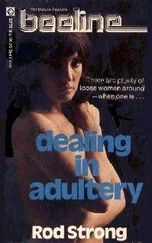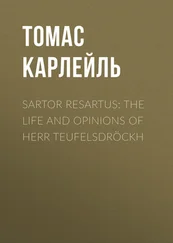Vladimir Nabokov - Strong opinions
Здесь есть возможность читать онлайн «Vladimir Nabokov - Strong opinions» весь текст электронной книги совершенно бесплатно (целиком полную версию без сокращений). В некоторых случаях можно слушать аудио, скачать через торрент в формате fb2 и присутствует краткое содержание. Город: New York, Год выпуска: 1990, Издательство: First Vintage International Edition, Жанр: Классическая проза, на английском языке. Описание произведения, (предисловие) а так же отзывы посетителей доступны на портале библиотеки ЛибКат.
- Название:Strong opinions
- Автор:
- Издательство:First Vintage International Edition
- Жанр:
- Год:1990
- Город:New York
- ISBN:нет данных
- Рейтинг книги:4 / 5. Голосов: 1
-
Избранное:Добавить в избранное
- Отзывы:
-
Ваша оценка:
- 80
- 1
- 2
- 3
- 4
- 5
Strong opinions: краткое содержание, описание и аннотация
Предлагаем к чтению аннотацию, описание, краткое содержание или предисловие (зависит от того, что написал сам автор книги «Strong opinions»). Если вы не нашли необходимую информацию о книге — напишите в комментариях, мы постараемся отыскать её.
Strong opinions — читать онлайн бесплатно полную книгу (весь текст) целиком
Ниже представлен текст книги, разбитый по страницам. Система сохранения места последней прочитанной страницы, позволяет с удобством читать онлайн бесплатно книгу «Strong opinions», без необходимости каждый раз заново искать на чём Вы остановились. Поставьте закладку, и сможете в любой момент перейти на страницу, на которой закончили чтение.
Интервал:
Закладка:
You have been quoted as saying: My pleasures are the most intense known to man: butterfly hunting and writing. Are they in any way comparable?
No, they belong essentially to quite different types of enjoyment. Neither is easy to describe to a person who has not experienced it, and each is so obvious to the one who has that a description would sound crude and redundant. In the case of butterfly hunting I think I can distinguish four main elements. First, the hope of capturing — or the actual capturing — of the first specimen of a species unknown to science: this is the dream at the back of every lepidopterist's mind, whether he be climbing a mountain in New Guinea or crossing a bog in Maine. Secondly, there is the capture of a very rare or very local butterfly — things you have gloated over in books, in obscure scientific reviews, on the splendid plates of famous works, and that you now see on the wing, in their natural surroundings, among plants and minerals that acquire a mysterious magic through the intimate association with the rarities they produce and support, so that a given landscape lives twice: as a delightful wilderness in its own right and as the haunt of a certain butterfly or moth.
Thirdly, there is the naturalist's interest in disentangling the life histories of littleknown insects, in learning about their habits and structure, and in determining their position in the scheme of classification — a scheme which can be sometimes pleasurably exploded in a dazzling display of polemical fireworks when a new discovery upsets the old scheme and confounds its obtuse champions. And fourthly, one should not ignore the element of sport, of luck, of brisk motion and robust achievement, of an ardent and arduous quest ending in the silky triangle of a folded butterfly lying on the palm of one's hand.
What about the pleasures of writing?
They correspond exactly to the pleasures of reading, the bliss, the felicity of a phrase is shared by writer and reader: by the satisfied writer and the grateful reader, or — which is the same thing — by the artist grateful to the unknown force in his mind that has suggested a combination of images and by the artistic reader whom this combination satisfies.
Every good reader has enjoyed a few good books in his life so why analyze delights that both sides know?
I write mainly for artists, fellowartists and followartists. However, I could never explain adequately to certain students in my literature classes, the aspects of good reading — the fact that you read an artist's book not with your heart (the heart is a remarkably stupid reader), and not with your brain alone, but with your brain and spine. «Ladies and gentlemen, the tingle in the spine really tells you what the author felt and wished you to feel». I wonder if I shall ever measure again with happy hands the breadth of a lectern and plunge into my notes before the sympathetic abyss of a college audience.
What is your reaction to the mixed feelings vented by one critic in a review which characterized you as having a fine and original mind, but ''not much trace of a generalizing intellect, «and as «the typical artist who distrusts ideas»?
In much the same solemn spirit, certain crusty lepidopterists have criticized my works on the classification of butterflies, accusing me of being more interested in the subspecies and the subgenus than in the genus and the family. This kind of attitude is a matter of mental temperament, I suppose. The middlebrow or the upper Philistine cannot get rid of the furtive feeling that a book, to be great, must deal in great ideas. Oh, I know the type, the dreary type! He likes a good yarn spiced with social comment; he likes to recognize his own thoughts and throes in those of the author; he wants at least one of the characters to be the author's stooge. If American, he has a dash of Marxist blood, and if British, he is acutely and ridiculously classconscious; he finds it so much easier to write about ideas than about words; he does not realize that perhaps the reason he does not find general ideas in a particular writer is that the particular ideas of that writer have not yet become general.
Dostoevski, who dealt with themes accepted by most readers as universal in both scope and significance, is considered one of the world's great authors. Yet you have described him as «a cheap sensationalist, clumsy and vulgar». Why?
NonRussian readers do not realize two things: that not all Russians love Dostoevski as much as Americans do, and that most of those Russians who do, venerate him as a mystic and not as an artist. He was a prophet, a claptrap journalist and a slapdash comedian. I admit that some of his scenes, some of his tremendous, farcical rows are extraordinarily amusing. But his sensitive murderers and soulful prostitutes are not to be endured for one moment — by this reader anyway.
Is it true that you have called Hemingway and Conrad «writers of books for boys»?
That's exactly what they are. Hemingway is certainly the better of the two; he has at least a voice of his own and is responsible for that delightful, highly artistic short story, «The Killers». And the description of the iridescent fish and rhythmic urination in his famous fish story is superb. But I cannot abide Conrad's souvenirshop style, bottled ships and shell necklaces of romanticist cliches. In neither of those two writers can I find anything that I would care to have written myself. In mentality and emotion, they are hopelessly juvenile, and the same can be said of some other beloved authors, the pets of the common room, the consolation and support of graduate students, such as — but some are still alive, and I hate to hurt living old boys while the dead ones are not yet buried.
What did you read when you were a boy?
Between the ages of ten and fifteen in St. Petersburg, I must have read more fiction and poetry — English, Russian and French — than in any other fiveyear period of my life. I relished especially the works of Wells, Poe, Browning, Keats, Flaubert, Verlaine, Rimbaud, Chekhov, Tolstoy, and Alexander Blok. On another level, my heroes were the Scarlet Pimpernel, Phileas Fogg, and Sherlock Holmes. In other words, I was a perfectly normal trilingual child in a family with a large library. At a later period, in Western Europe, between the ages of 20 and 40, my favorites were Housman, Rupert Brooke, Norman Douglas, Bergson, Joyce, Proust, and Pushkin. Of these top favorites, several — Poe, Jules Verne, Emmuska Orczy, Conan Doyle, and Rupert Brooke — have lost the glamour and thrill they held for me. The others remain intact and by now are probably beyond change as far as I am concerned. I was never exposed in the twenties and thirties, as so many of my coevals have been, to the poetry of the not quite first-rate tliot and ot definitely secondrate Pound. 1 read them late in the season, around 1945, in the guest room of an American friend's house, and not only remained completely indifferent to them, but could not understand why anybody should bother about them. But I suppose that they preserve some sentimental value for such readers as discovered them at an earlier age than I did.
What are your reading habits today?
Usually I read several books at a time — old books, new books, fiction, nonfiction, verse, anything — and when the bedside heap of a dozen volumes or so has dwindled to two or three, which generally happens by the end of one week, I accumulate another pile. There are some varieties of fiction that I never touch — mystery stories, for instance, which I abhor, and historical novels. I also detest the so-called «powerful» novel — full of commonplace obscenities and torrents of dialogue — in fact, when I receive a new novel from a hopeful publisher — «hoping that 1 like the book as much as he does» — I check first of all how much dialogue there is, and if it looks too abundant or too sustained, I shut the book with a bang and ban it from my bed.
Читать дальшеИнтервал:
Закладка:
Похожие книги на «Strong opinions»
Представляем Вашему вниманию похожие книги на «Strong opinions» списком для выбора. Мы отобрали схожую по названию и смыслу литературу в надежде предоставить читателям больше вариантов отыскать новые, интересные, ещё непрочитанные произведения.
Обсуждение, отзывы о книге «Strong opinions» и просто собственные мнения читателей. Оставьте ваши комментарии, напишите, что Вы думаете о произведении, его смысле или главных героях. Укажите что конкретно понравилось, а что нет, и почему Вы так считаете.










